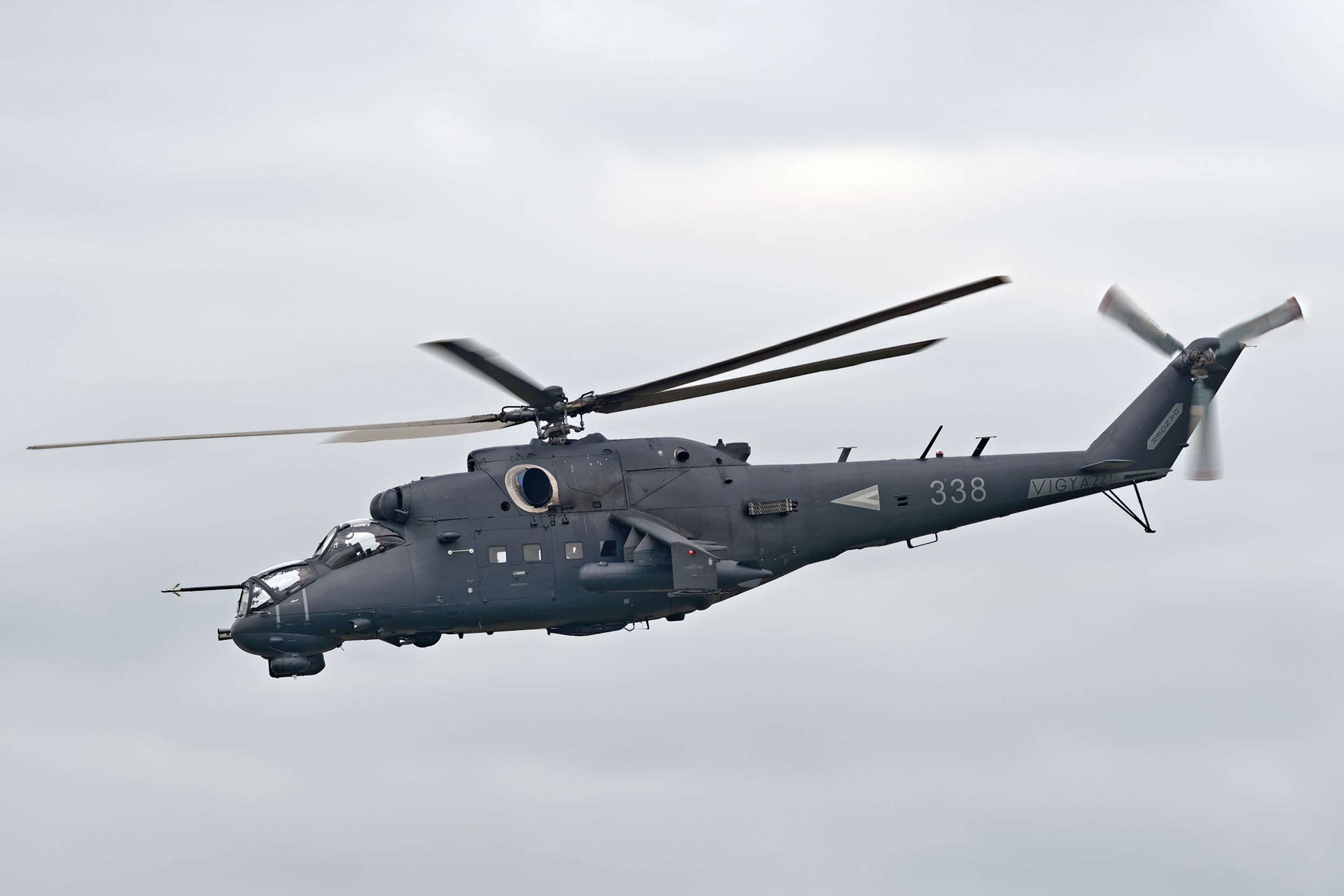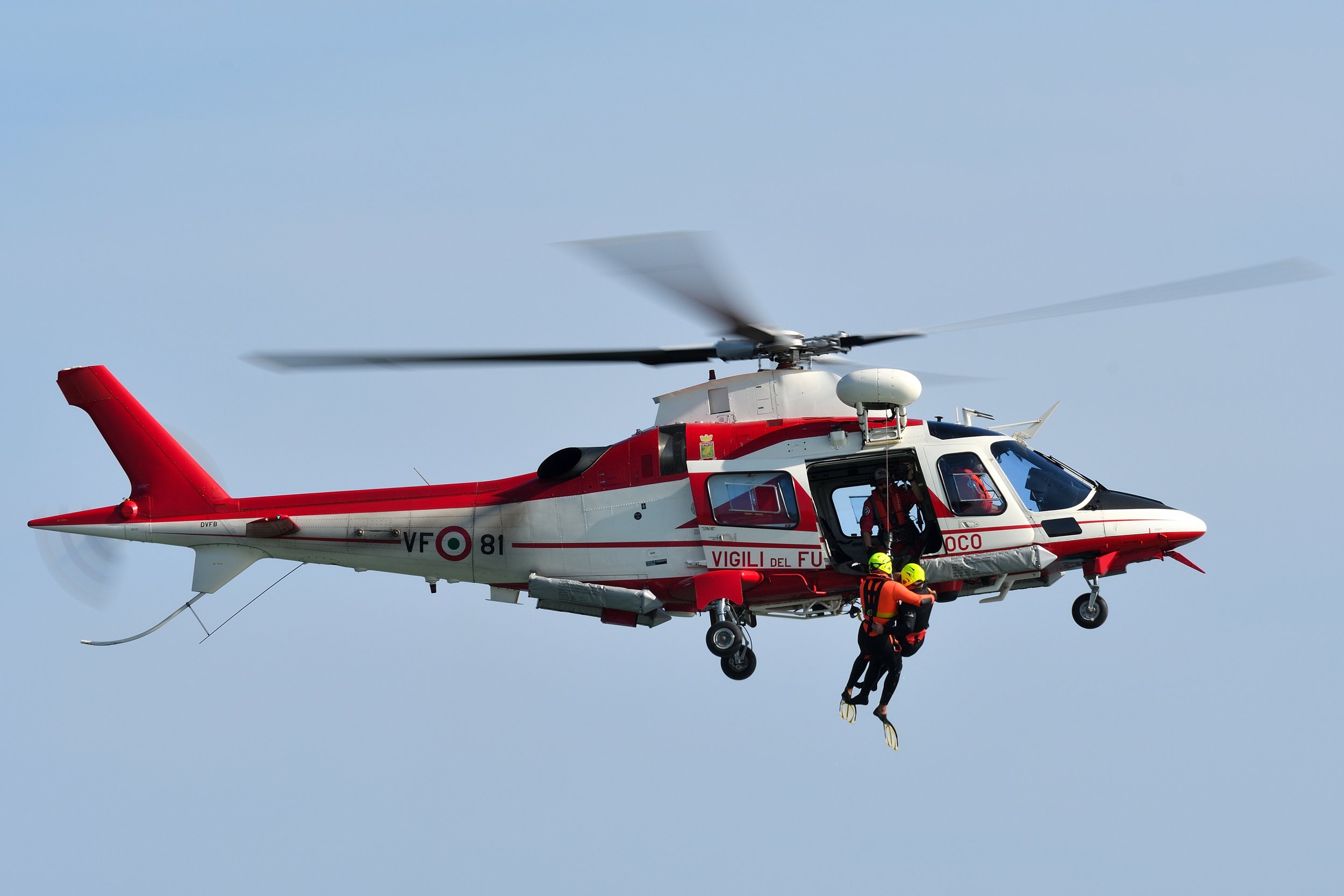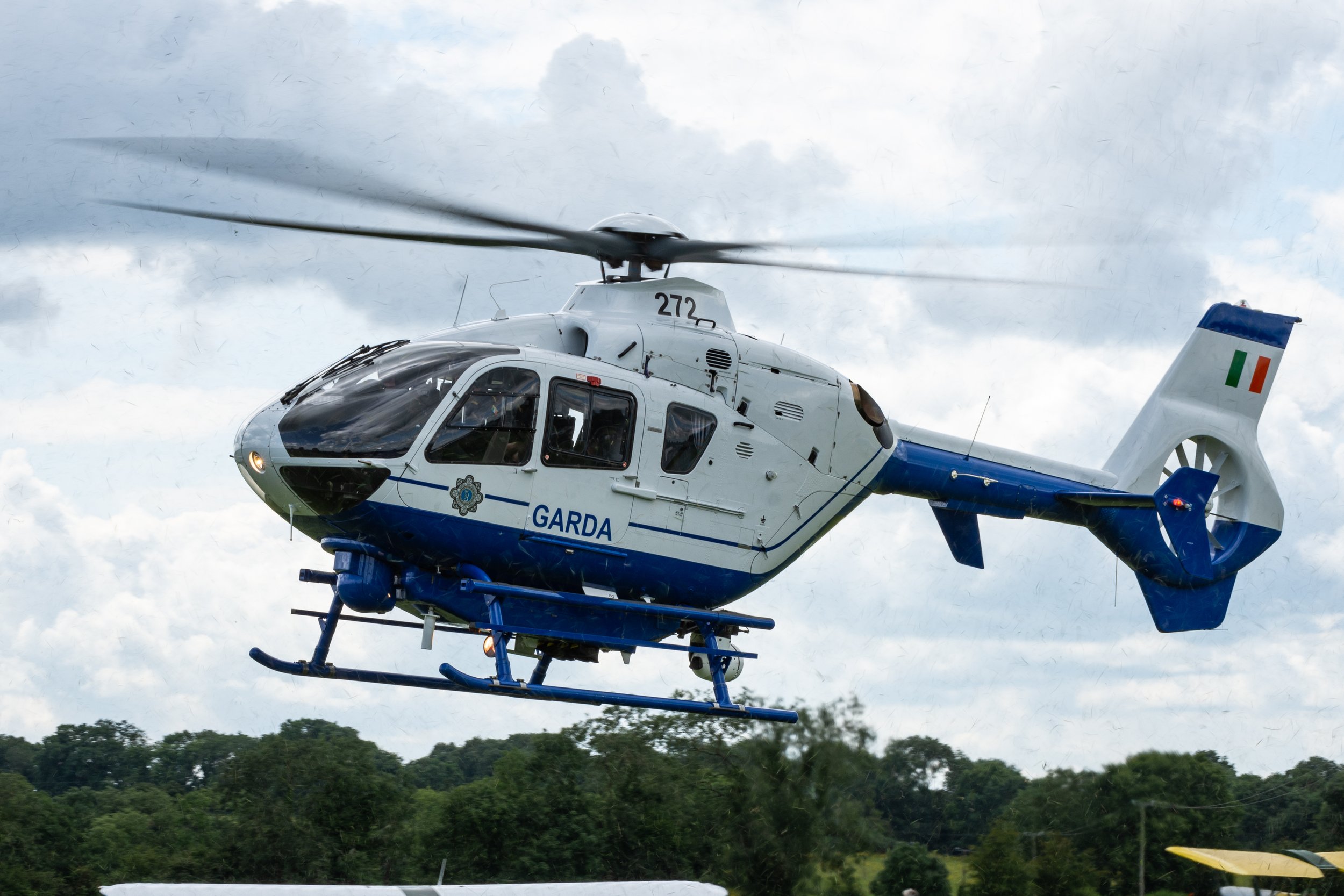Finnish Border Guard H215
Country
Finland
Aircraft
H215
Base
Helsinki Airport
Airbus Helicopters H215
The Airbus Helicopters H215 (formerly Eurocopter AS332 Super Puma) is a four-bladed, twin-engine, medium-size utility helicopter developed and marketed originally by Aérospatiale, later by Eurocopter and currently by Airbus Helicopters. It is a re-engined and more voluminous version of the original Aérospatiale SA 330 Puma. First flying in 1978, the Super Puma succeeded the SA 330 Puma as the main production model of the type in 1980. Since 1990, Super Pumas in military service have been marketed under the AS532 Cougar designation. In civilian service, a next-generation successor to the AS 332 was introduced in 2004, the further-enlarged Eurocopter EC225 Super Puma.
The AS332 Super Puma is powered by a pair of Turbomeca Makila 1A1 turboshaft engines which drive the rotorcraft's four-bladed main rotor and five-bladed tail rotor as well two separate hydraulic systems and a pair of electrical alternators. Fuel is housed in six internal fuel tanks, additional auxiliary and external tanks can be equipped for extended flight endurance. For safety, the fuel tanks use a crash-worthy plumbing design and fire detection and suppression systems are installed in the engine bay. The monocoque tail boom is fitted with tail rotor strike protection, the forward portion of the boom accommodated a luggage compartment. The retractable tricycle landing gear is designed for high energy absorption qualities.
The main cabin of the Super Puma, which is accessed via two sliding plug doors, used a reconfigurable floor arrangement, various passenger seating or cargo configurations can be adopted, including specialised configurations for medical operators. According to Airbus Helicopters, in addition to the two pilots, the short-fuselage AS332 can accommodate up to 15 passengers while the stretched-fuselage AS332 increases this to 20 passengers in a comfortable configuration. Soundproof upholstery is installed, as is separately adjustable heating and ventilation systems. Along with the doors, 12 windows around the main cabin area are jettisonable for emergency exits. The lower fuselage can also be fitted with flotation gear. A hatch in the floor to access the cargo sling pole is present in the cabin, as is individual stowage space for airborne equipment.
The flight control system of the Super Puma uses a total of 4 dual-body servo units for pitch control of the cyclic, collective, and tail rotor. A duplex digital autopilot is also incorporated. The cockpit is equipped with dual flight controls. Principle instrumentation consists of four multifunction liquid crystal displays along with two display and autopilot control panels; for redundancy, a single Integrated Standby Instrument System (ISIS) and Vehicle Monitoring System (VMS) are also fitted. According to Airbus Helicopters, the avionics installed upon later variants has ensured a high level of operational safety. Third-party firms have offered various upgrades for the Super Puma, these have included integrated flight management systems, global positioning systems (GPS) receivers, a digital map display, flight data recorders, an anti-collision warning system, Night Vision Goggles-compatibility, and multiple radios.
| Back to Top |
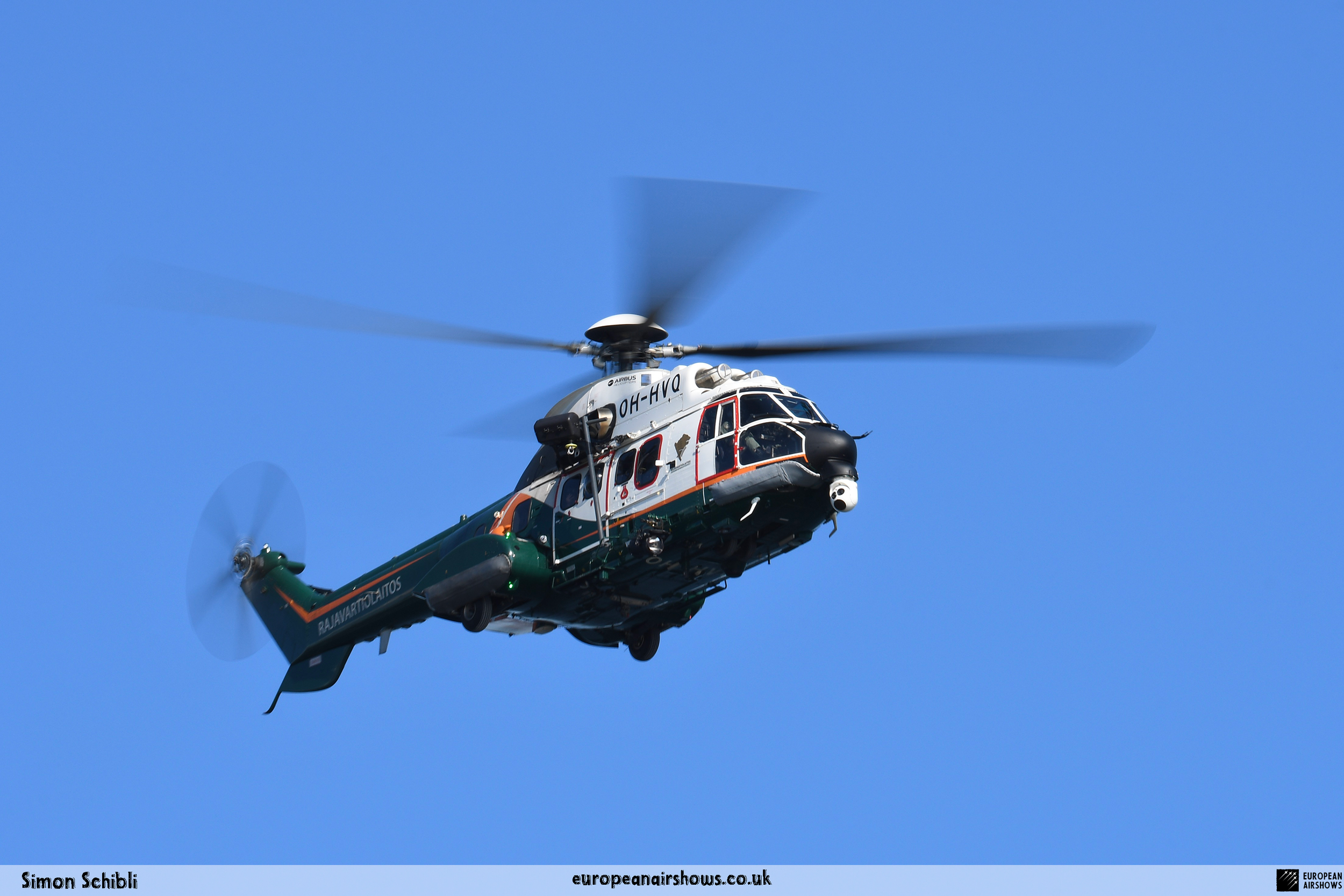
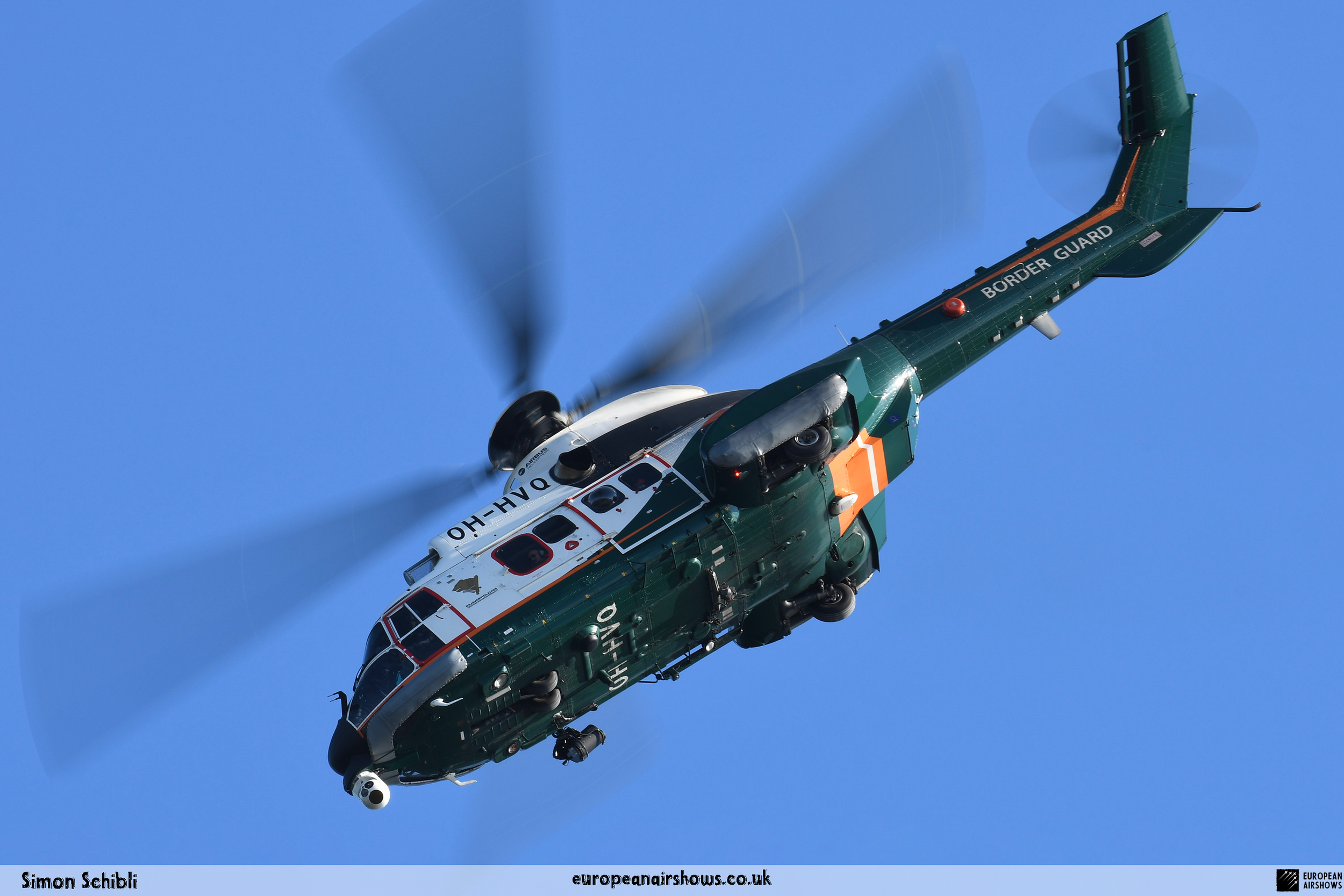
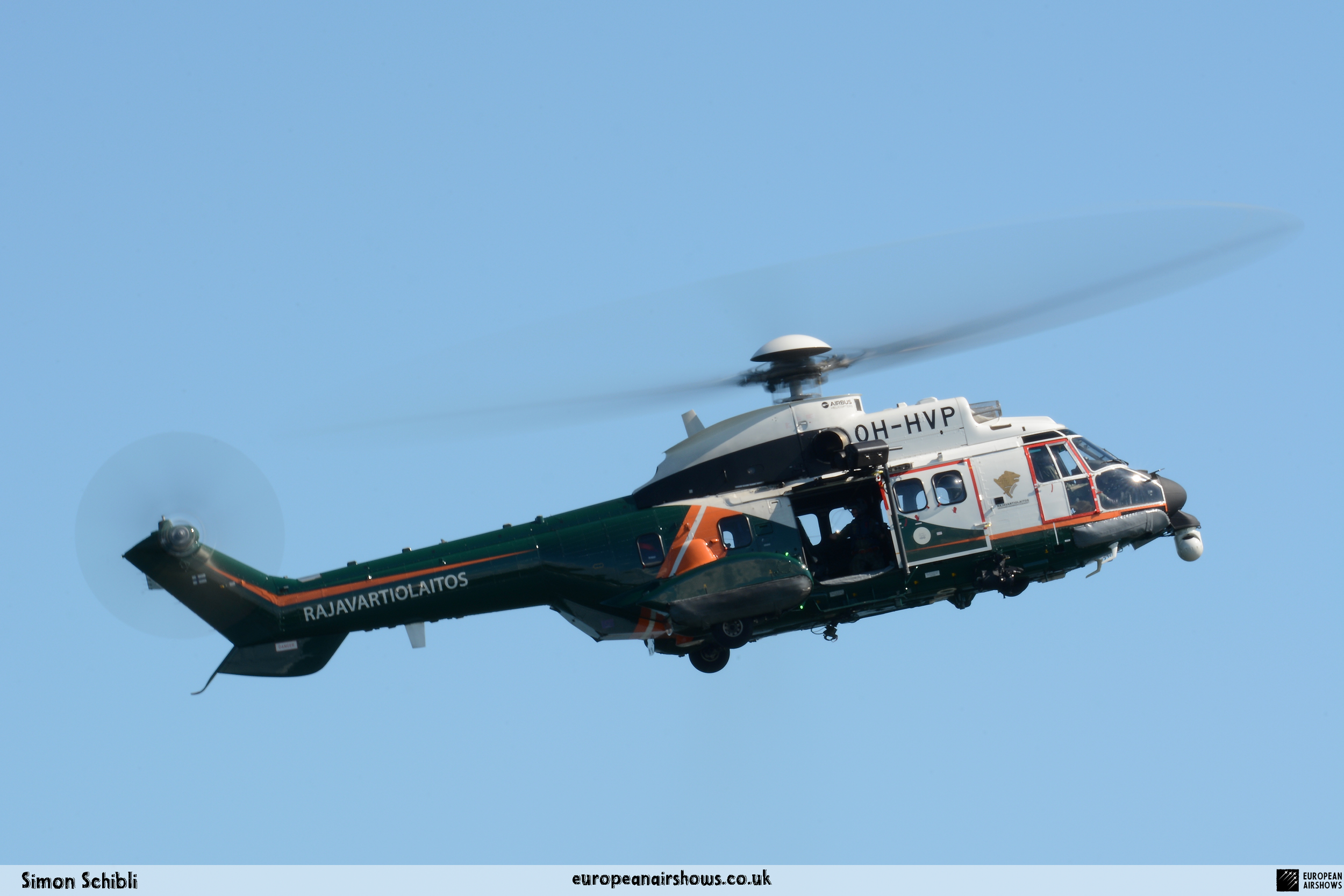
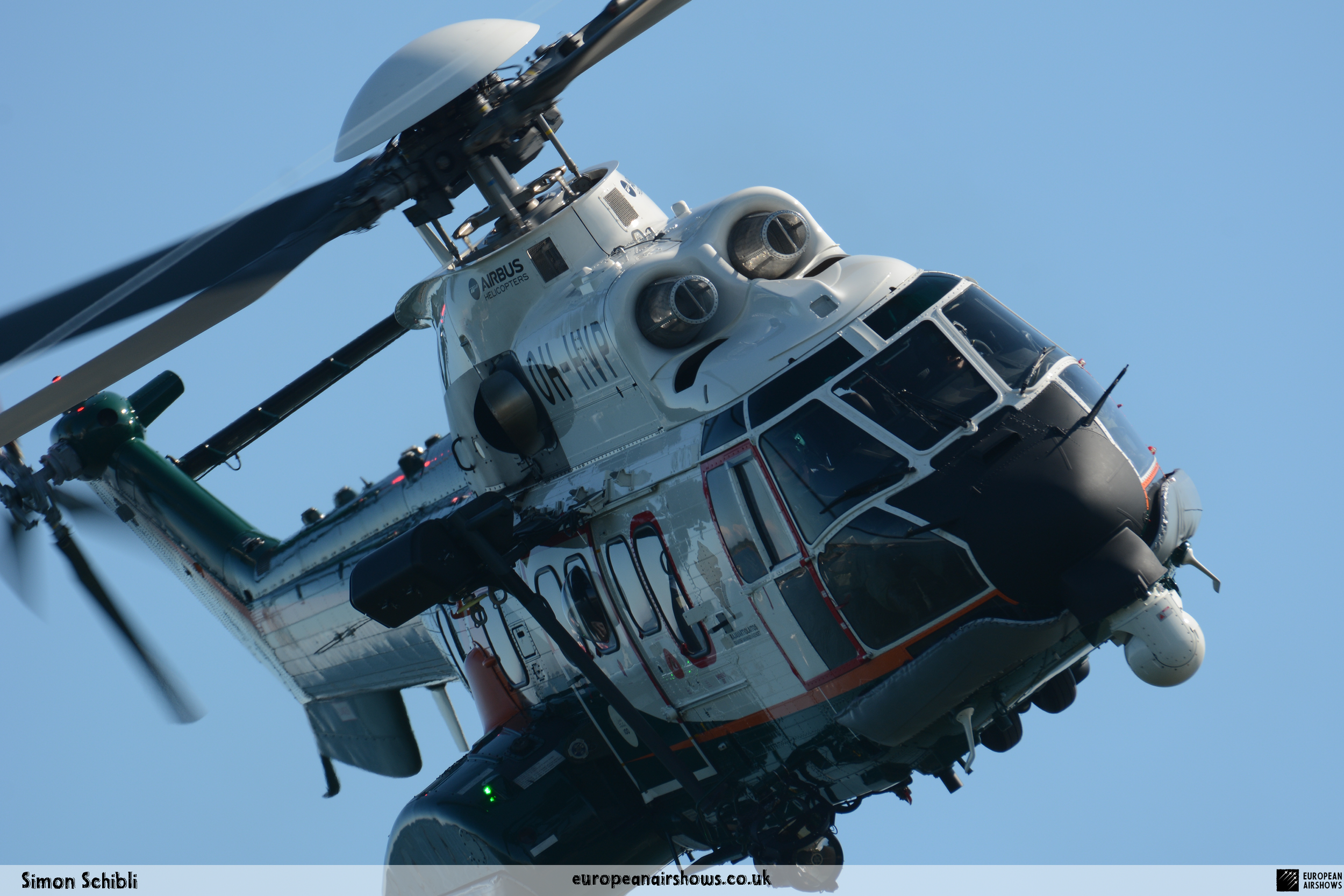
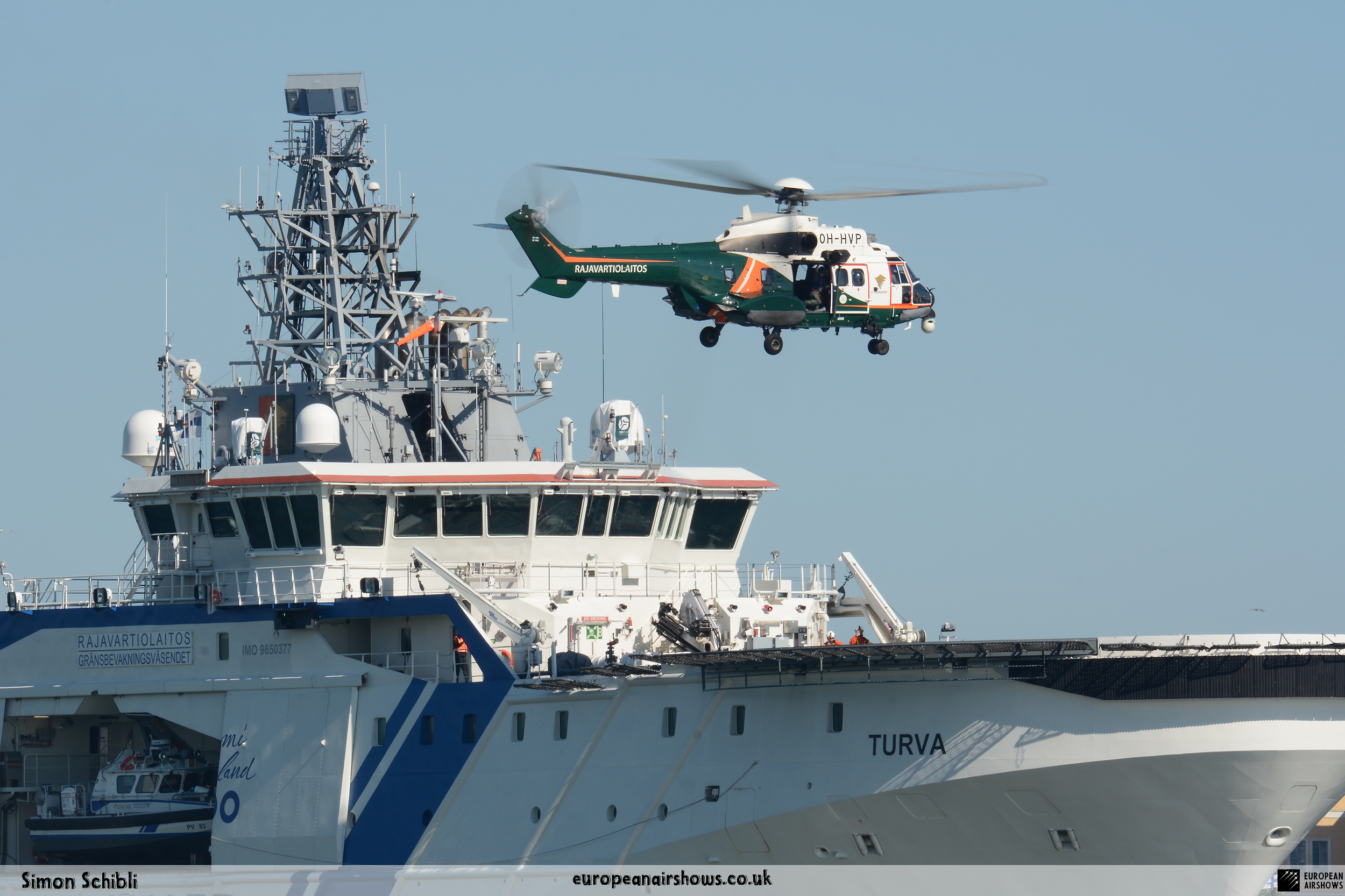
| Back to Top |

























